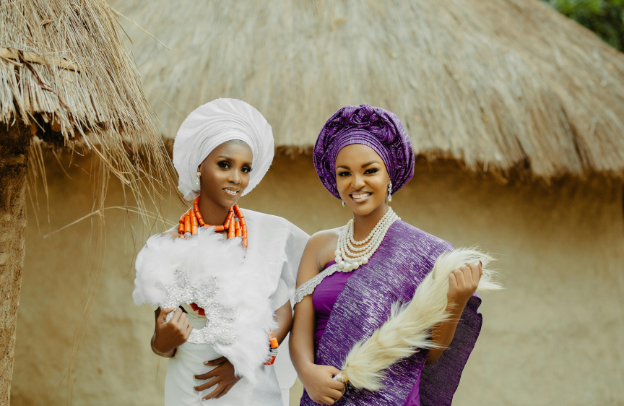Exploring the African Diaspora’s Return to Ancestry: The Spiritual and Cultural Journey of Reconnection

Think about this, the road home is not a straight line, but a spiral, where every step forward calls us to look back, remember, and reclaim? For those of us in the African diaspora, the journey to the motherland is far more than a trip across oceans. It is a spiritual return, a reclaiming of self, and a reconnection to something ancient and true.
Learn How to Leverage Your Story through our Story To Asset Framework.
In this unfolding dance between memory and movement, cultural tourism has become a powerful rite of passage.
But beyond the photographs, the drumming ceremonies, and the visits to sacred sites, lies something even deeper: the birth of lifelong relationships rooted in shared heritage, healing, and the collective reimagining of who we are and who we can become together.
The Call of Home: A Diasporan Longing
Across the globe from Harlem to Havana, Brixton to Bahia in Brazil, millions of African-descended people carry a question deep in their bones: Where do I truly belong?
The African Union estimates over 200 million people of African descent live outside the continent.
According to a publication by the World Health Organization, “International Day for People of African Descent”, more than 200 million people in the Americas alone identify as being of African descent. Millions more are located worldwide outside the African continent.
These are descendants of those who were taken, displaced, and scattered by the transatlantic slave trade, colonialism, and migration. Despite being born on different continents, we carry similar cultural echoes, spiritual intuitions, and an unspoken yearning: to touch the land of our ancestors, to know their names, their songs, and their strength.
This is why a visit to Africa, for many, is not a vacation, but a pilgrimage. Whether it’s walking the storied corridors of Cape Coast Castle in Ghana, joining the rhythm of the Osun-Osogbo Festival in Nigeria, or meditating amidst the highlands of Ethiopia, these journeys stir something sacred. As one writer said, “The past is a country we can never visit, but sometimes Africa feels like its capital.”
We travel not just to see, but to remember. To collect the pieces of ourselves scattered across history.
Not Just Guests, But Family: The Power of Cultural Exchange
When diasporans return, something magical happens. It’s not a one-sided encounter. The warm embrace we receive is rooted in the African philosophy of Ubuntu: “I am because we are.”
Tourism is fast becoming a space of mutual recognition. We bring stories of survival, innovation, and resilience. African communities, in turn, offer ancestral wisdom, hospitality, and traditions that were never lost, just waiting to be remembered.
Consider Ghana’s “Year of Return” in 2019, which drew over a million diaspora visitors and generated nearly $2 billion in tourism revenue. But more importantly, it rekindled ancestral bonds.
See also Exploring Africa’s Historical Sites: Tourism as a Pathway to Ancestral Knowledge
Many didn’t just visit, they stayed, invested, partnered, and found new purpose. Cultural tourism is a true gateway to a deeper relationship: economic collaboration, cultural preservation, and spiritual homecoming.
This is not extraction tourism—where cultures are consumed for entertainment. This is reconnection tourism, where cultural exchange becomes the soil in which long-term partnerships can grow.
Ancient Wisdom, Modern Journeys: Sankofa, Ubuntu, Ujamaa
Africa has always known that we do not move forward without first remembering who we are. The wisdom of our ancestors offers three guiding principles that shape these new diasporan journeys:
Sankofa – “Go back and fetch it.”
From the Akan people of Ghana, Sankofa teaches us to reclaim what was forgotten or left behind. Diasporans engage in naming ceremonies, learn traditional dances in Senegal, or participate in spiritual rituals in Benin. This is not about witnessing culture; it is about re-entering it.
Ubuntu – “I am because we are.”
This South African philosophy reminds us that our humanity is tied to each other. Through village homestays, communal meals, and oral storytelling, tourists are not outsiders; they are kin returning home.
Ujamaa – “Familyhood and cooperative economics”
Rooted in Swahili thought and popularized during Tanzania’s independence, Ujamaa calls us to build together. Many cultural tourism programs include artisan workshops, investment forums, and mentorships. This ensures that tourism is not just emotional—it is also economically empowering for African communities.
From Tourist to Trustee: Building Beyond the Visit
What happens after the dance ends, the ceremony closes, and the tourist boards the plane? For many, the connection endures and evolves.
See also 7-Day Ghana Heritage & Culture Homecoming Experience
In Sierra Leone, the African Ancestry DNA Experience Tour welcomes diasporans with citizenship ceremonies, fostering a powerful sense of belonging. Several African Americans have received Sierra Leonean citizenship since 2020. Some return to build schools. Others sponsor youth programs. These are no longer visitors; they are trustees of a shared legacy.
Programs like Birthright AFRICA and Tastemakers Africa are creating new pathways for cultural immersion, education, and entrepreneurial collaboration. These aren’t just trips; they are incubators for leadership, community development, and transcontinental solidarity.
The Diaspora Is the Sixth Region: A Vision for the Future
The African Union has named the diaspora the “sixth region” of the continent, a strategic and cultural force in Africa’s future. As governments digitize heritage sites, reform visa policies, and design pan-African travel infrastructure, the doors are opening wider.
Countries like Rwanda have made it easier for Africans and their descendants to visit and stay. Nigeria is digitizing its cultural assets. Kenya is nurturing creative tourism in its rural communities.
Diasporans are responding. They want more than sightseeing. They want purposeful travel, deeply curated experiences that honor their heritage and offer channels to give back, invest, and co-create. That is what AClasses is offering through its SANKOFA: Retracing My African Roots.
Digital Bridges for Cultural Kinship
In this digital age, the journey doesn’t end at the airport. Through WhatsApp groups, diasporan travel communities, and platforms like Afripods or BlackTravelBox, the relationships built on African soil are kept alive online.
Language exchange apps. Virtual ceremonies. Diaspora-run travel consultancies. All of these tools extend the embrace, allowing us to continue walking in Sankofa, Ubuntu, and Ujamaa—no matter where we are.
Come Home Boldly: A Call to Remember and Rebuild
Dear Diasporan, Africa is not a myth. It is not just pain, or politics, or poverty. It is also the rhythm in your breath, the dreams of your ancestors, and the soil calling your name.
Coming home is not an escape. It is a step into legacy. Into transformation. Into a future only we can build together. Ask yourself:
- What will I remember?
- What will I reclaim?
- What will I rebuild?
Because your visit is not the end. It is the beginning.
Let us rise, rooted in memory. Let us return—not just with open hearts, but with open hands, ready to build the bridges our ancestors dreamed of.
Learn How to Leverage Your Story through our Story To Asset Framework.





